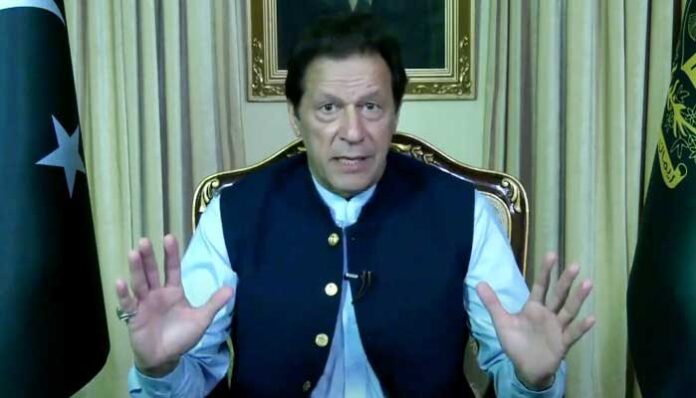ISLAMABAD: Prime Minister Imran Khan said on Tuesday the investment in sustainable infrastructure would be the key to a resilient economic recovery and realization of Sustainable Development Goals (SDGs), stressing upon creation of a United Nations (UN) Infrastructure Investment Facility to mobilize an additional $1.5 trillion annually in the developing countries.
“Rich countries should support the creation of at least $500 billion in new Special Drawing Rights and reallocation of unutilized SDRs to developing countries,” he said while participating in a virtual high-level meeting on ‘Financing the 2030 Agenda for Sustainable Development in the era of Covid-19 and Beyond’, co-convened by the UN secretary-general and prime ministers of Canada and Jamaica.
The high-level meeting brought together heads of states, representatives of international organizations, private sector and civil society to discuss ways to recover from the current crisis in the short term, mobilize financial resources to achieve SDGs in the medium term and build resilience and sustainability of countries and the global financial architecture in the long term.
The PM reminded the international community of the crucial need for developing countries to be provided debt relief in the backdrop of the ongoing coronavirus pandemic which has hit developing economies hard. He called upon the G20 countries in particular to extend the Debt Service Suspension Initiative (DSSI) for another year.
“The request for forbearance under this initiative should not affect the country’s credit rating. This is due to force majeure, not mismanagement,” the prime minister underscored. “Multilateral development banks should participate in the Debt Suspension Initiative. Other short-term measures which could cover both official and private creditors include debt swaps for health, climate and SDGs; debt buy-backs; re-profiling debt; and regional resilience funds,” he suggested.
The PM noted that the International Monetary Fund (IMF) had estimated that developing countries would require an additional $2.5 trillion to recover from Covid-induced contraction.
The prime minister, speaking of Pakistan’s fight against the virus, said that despite the country’s financial constraints “we have injected over $8bn, [nearly] 3pc of our GDP to protect our poor and keep the economy going”.
“Debt relief is one of the quickest ways to create fiscal space for developing countries. Therefore, in April, I called for a global initiative on debt relief,” said the prime minister. “Subsequently, Pakistan initiated discussions on this matter at the United Nations and co-led the discussion group on debt vulnerability.”
“I welcome the extensive menu of options by each of the six discussion groups. We must prioritise those actions that can have a significant impact and can be quickly implemented,” the premier said.
PM Imran, before concluding, underscored that recovery from recession in a post-pandemic world “must be inclusive and equitable”.




